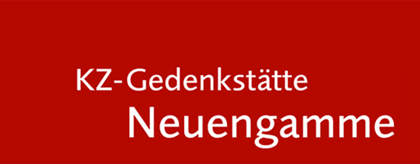05/20/2015 Commemorative ceremony, Conference, Project
Looking Back on the “Future of Remembrance” Forum
One hundred people from Ukraine, Belarus, Poland, France, the Netherlands, Belgium, Slovenia, the Czech Republic, Hungary, Denmark, Germany, Israel, the US and South Africa attended the “Future of Remembrance” forum on 5–6 May 2015. It was an opportunity to come together for children, grandchildren, and great-grandchildren of former concentration camp prisoners, including those who were persecuted for being Jewish or for political reasons as well as former slave labourers from Eastern Europe. For some of them, it was the first time to participate in such discussions. Everyone agreed that it was important to make the many different family backgrounds more apparent.
Participants collaborated with staff members of memorials, descendants of Nazi perpetrators, pupils from in and around Hamburg as well as other interested individuals to develop strategies for subsequent generations to remember Nazi crimes.
The international character of the forum also made it possible to develop transnational approaches to the future work of memorials and the decisive role played by subsequent generations. Some of the issues that were discussed included what significance memorials will have for subsequent generations, and why memorials need supporters in Germany and the world.
The participants of one working group discussed whether the names of former concentration camp prisoners who survived should be presented along with the names of the dead at historical sites. Another working group addressed the relevance of new media and new methods for searching of information. They also talked about speaking in public about family history. Especially popular was the working group on the opportunities and limitations of a dialogue between the children and grandchildren of perpetrators and those of the victims of Nazi persecution. Two other working groups explored the idea of establishing a network for the relatives of former concentration camp prisoners, and they discussed what issues, goals and structures this network might have. They also talked about how organisations of former political prisoners could involve subsequent generations more actively in their work, thereby opening their organization to new People.
In the concluding discussion, participants again brought up the idea of establishing an international network, and the practical means and necessary media for forming such a network were presented. They talked about how they would like this network also to express opinions about racism and antisemitism today and to act as an advocate for memorials and the work that they do. The first step toward establishing this network will be to set up an Internet platform where the descendants of those persecuted by the Nazis, and others who are interested, can exchange ideas and continue to work productively on the issues that were discussed at the forum.





